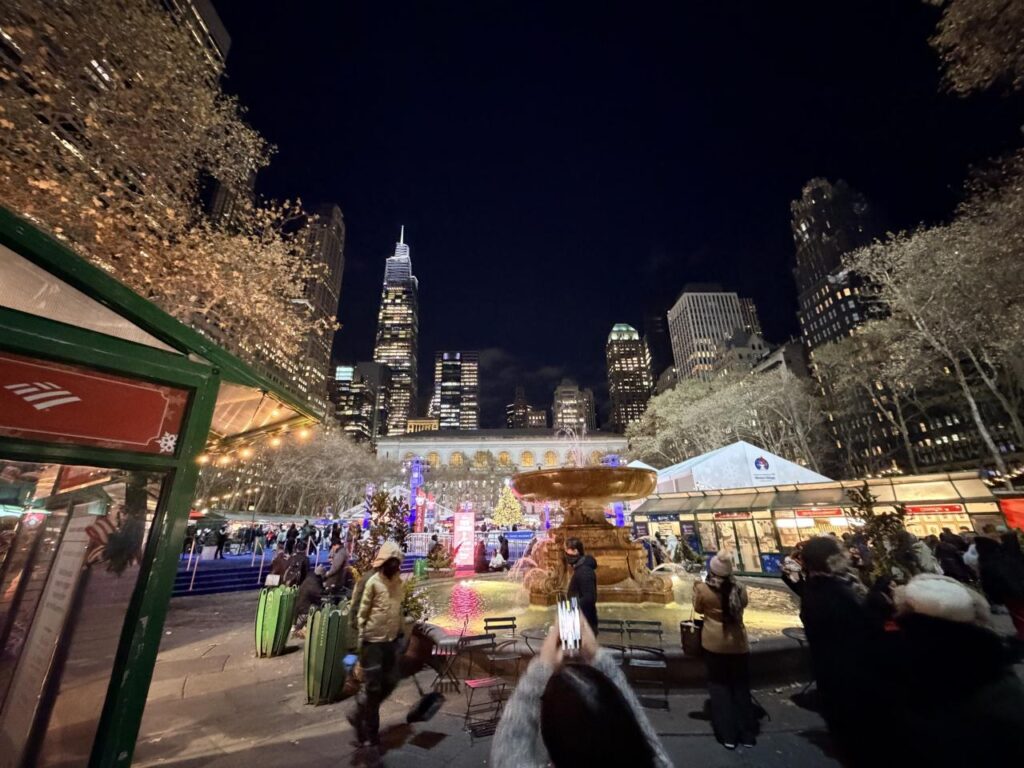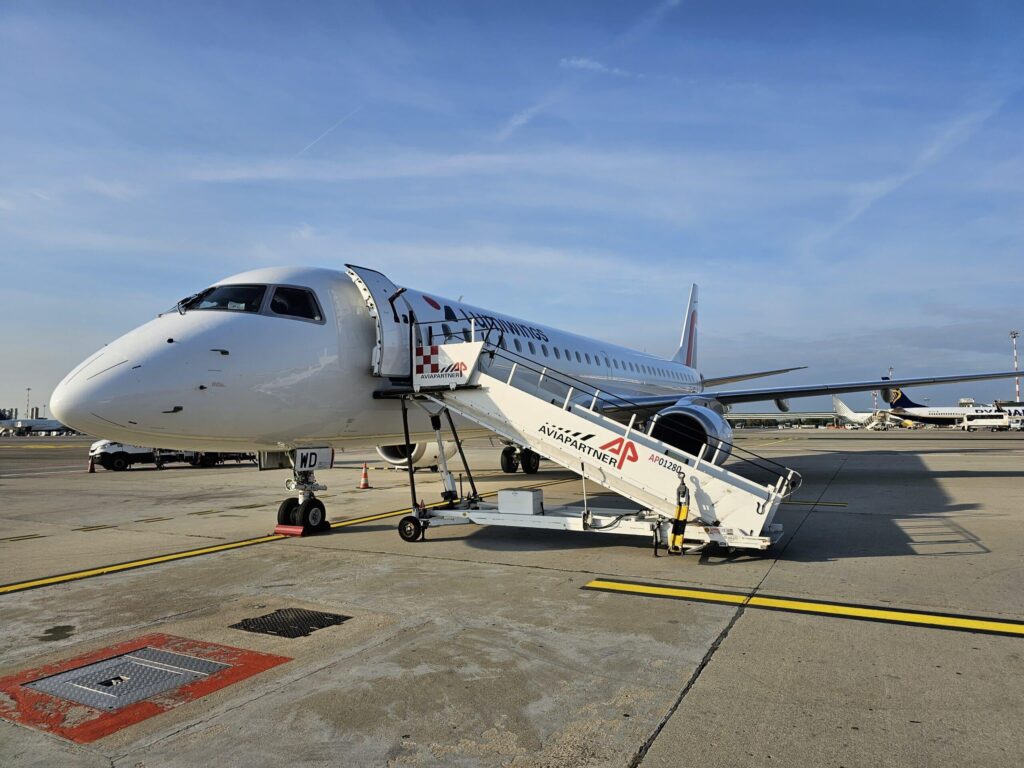A Year In Review: Exploring the Solo Travel Adventures & Emerging Trends of 2024
The year 2024 has been a remarkable one for the global travel industry, marking a significant resurgence in solo travel adventures. With global tourism statistics in 2024 showing nearly 96% recovery to pre-pandemic levels and contributing a staggering $11 trillion to the global GDP, travelers worldwide are embracing the freedom and excitement of exploring on their own.
Solo travelers are not just visiting destinations; they are immersing themselves in cultures, engaging with local communities, and seeking transformative experiences that contribute to personal growth and global understanding. From the rise of digital nomadism in 2024 to the booming interest in wellness travel trends and sustainable travel practices, solo travel trends are reshaping the way we see the world and redefining the modern travel experience.
The Resurgence of Solo Travel in 2024

In 2024, the phenomenon of solo travel has witnessed remarkable growth, emerging as one of the major travel trends of 2024. According to recent travel surveys on solo travel, an impressive 42% of travelers are planning solo trips, highlighting a strong desire for independence, self-discovery, and personal growth.
This surge is particularly notable among women over 55, who astonishingly make up 80% of solo travelers. Life transitions such as retirement, an increased focus on personal fulfillment, and the lifting of pandemic restrictions have all contributed to this movement. Many are turning to organized solo travel tours, which offer the perfect blend of convenience, safety, and the opportunity to connect with like-minded adventurers.
Recognizing this shift in traveler preferences, leading travel companies adapting to solo travel trends have significantly reduced or even eliminated single supplements since 2009, making solo travel more accessible and affordable than ever before. In fact, searches for solo travel deals have surged by 30%, underscoring a robust and growing market trend.
Travel operators are innovating by creating specialized accommodations and activities that cater specifically to solo travelers, with a considerable focus on women, who form 85% of this demographic. The importance of comprehensive solo travel insurance has also come to the forefront, providing peace of mind and security for those embarking on independent journeys across the globe.
In the UK, recent data indicates that a remarkable one third of travelers now prefer solo trips, signifying a profound shift in travel preferences within the region. Older and affluent travelers, in particular, are embracing active holidays and the independence that solo travel affords. They highly value social opportunities for solo travelers and the ability to pursue personal interests without compromise.
The average stay for solo travelers has extended to 12 days, reflecting a growing desire for deeper cultural immersion, authentic experiences, and meaningful connections with the communities they visit. This trend highlights a move away from traditional tourism towards more enriching and personalized journeys.
Among the myriad of global destinations, Japan as top solo travel destination in 2024 has emerged at the forefront for solo travelers. Japan offers an enchanting blend of tradition and modernity, with unique experiences such as dining with sumo wrestlers, meditating with Buddhist monks, and exploring the neon-lit streets of Tokyo.
Other trending destinations capturing the hearts of solo adventurers include Argentina, with its vibrant culture and stunning landscapes; Egypt, offering ancient wonders and desert adventures; and Sri Lanka, known for its rich heritage and breathtaking train journeys through tea plantations. This growing interest in diverse locales underscores the trend of adventurous, immersive solo travel, where explorers seek out unique cultural experiences for solo travelers that go beyond conventional tourism.
Key Trends Shaping Solo Travel

The solo travel landscape in 2024 is being shaped by several transformative trends that are redefining the way individuals explore the world. One of the most significant is the rise of digital nomadism and remote work travel in 2024. With the global shift towards remote work, many countries are now offering digital nomad visas, enabling professionals to work from idyllic locations around the world.
This shift is particularly popular among Millennials and Gen Z travelers, who prioritize experiences over possessions and seek the freedom to explore while maintaining their careers. The fusion of work and travel has opened up new possibilities for extended explorations and deep cultural immersion. Countries like Estonia, Barbados, and Costa Rica are leading the way with digital nomad visa programs, offering an array of options for those looking to blend work with the adventure of living abroad.
Sustainable travel has gained significant prominence in 2024, with an increased demand for eco-friendly options that prioritize the planet’s well-being. Travelers are focusing on reducing their carbon footprints by opting for eco-friendly accommodations, participating in community-based tourism initiatives, and supporting local economies.
The concept of “traveling with a purpose” resonates strongly with the modern solo traveler, who seeks to make a positive impact on the destinations they visit. Simultaneously, wellness travel has surged, now valued at $651 billion globally. Solo travelers are increasingly seeking self-care and transformative experiences that nurture both body and mind.
The fusion of adventure and wellness has given rise to trips that foster personal growth and well-being, such as wellness retreats for solo travelers, yoga and meditation journeys, and outdoor adventures that reconnect travelers with nature. This trend reflects a holistic approach to travel, where health, mindfulness, and sustainability converge.
Spontaneous travel has emerged as a significant trend, driven by a desire for flexibility, authenticity, and the thrill of the unexpected. The influence of technology cannot be overstated; with the advent of last-minute travel booking apps, travelers can secure flights, accommodations, and activities on the go, enabling greater freedom and the ability to seize opportunities as they arise.
Social media platforms and user-generated content inspire travelers to explore off-the-beaten-path destinations shared by others in real-time. This ease of access has made spontaneous solo travel more appealing and accessible than ever, allowing individuals to tailor their journeys in the moment and create unique, personal experiences.
Another notable trend is the rise of “bleisure” travel—a blend of business and leisure. As global tourism rebounds post-pandemic, more professionals are extending their business trips to explore destinations independently. This approach offers the best of both worlds, allowing travelers to fulfill professional obligations while satisfying their personal wanderlust.
The flexibility of remote work and the normalization of remote work policies in corporate environments have further fueled this trend, enabling professionals to work from virtually anywhere. Companies are also recognizing the benefits of bleisure travel, with some offering extended stay options and encouraging employees to immerse themselves in new cultures—a win-win for personal enrichment and professional development.
Technology and Solo Travel

Advancements in travel technology have been instrumental in enhancing and transforming the solo travel experience. AI-driven travel personalization tools are becoming increasingly common, enabling travelers to customize their itineraries based on their specific interests, preferences, and even real-time feedback.
These intelligent systems can recommend destinations, accommodations, restaurants, and activities that align with a traveler’s unique profile. Moreover, digital tools and platforms have revolutionized the planning and booking process. From comprehensive travel planning apps to virtual reality previews of destinations, technology supports the trend towards spontaneous and flexible travel.
Solo travelers benefit from instant access to information, seamless booking services, and the ability to adjust plans on the fly. This technological empowerment fosters confidence and independence, key attributes for those embarking on solo adventures. Safety remains a paramount concern for solo travelers, and technology has provided innovative solutions to enhance personal security.
Devices such as GPS trackers, personal safety alarms, and satellite communication devices have become popular tools among solo adventurers. These technologies allow travelers to share their real-time locations with trusted contacts and access emergency services when needed. However, experts advise maintaining a balance of technology and personal preparedness. Over-reliance on gadgets can create vulnerabilities if devices fail or signals are unavailable.
Therefore, safe travel practices for solo travelers include staying informed about regional laws and regulations, particularly regarding devices like satellite phones, which may be restricted or illegal in certain areas. Travel operators and organizations emphasize the importance of situational awareness, local knowledge, and travel safety education programs to ensure a secure and enjoyable journey.
The integration of smart technology extends beyond personal devices to encompass accommodations and transportation. Smart hotels featuring IoT technology offer enhanced comfort, personalization, and efficiency—guests can control room settings via mobile apps, check in and out seamlessly, and receive personalized service recommendations.
In transportation, the resurgence of rail travel has brought about revitalized train stations and the introduction of luxury and sleeper trains, providing enriched travel experiences that combine nostalgia with modern convenience. The use of apps and online services streamlines the journey, from digital ticketing and real-time updates to personalized itinerary planning. These advancements not only improve convenience but also enhance the overall travel experience by providing tailored services that meet individual needs and preferences.
Social media platforms like Instagram, TikTok, and YouTube have become powerful influencers in travel choices, especially among solo travelers. Hashtags like #solotravel on social media, which have amassed over 5.2 million posts, serve as a vast repository of inspiration, tips, and real-life experiences. User-generated content showcases authentic stories and destinations, encouraging others to embark on their own solo adventures.
Influencers and everyday travelers share insights on hidden gems, budget-friendly tips, and personal narratives that resonate with a broad audience. This digital community fosters connections between independent travelers, creating a support network and enhancing the sense of global camaraderie.
Challenges and Opportunities

Despite the positive trends and growing support, solo travelers still face challenges such as single supplements, safety concerns, and occasional societal stigma. Single supplements can significantly increase the cost of travel for individuals, but many travel operators are responding by reducing or eliminating these extra charges and providing solo traveler-friendly tour packages and accommodations.
Safety remains a paramount priority; travelers must navigate unfamiliar environments, and concerns can be heightened when alone. To address this, there is an emphasis on secure accommodations, trustworthy tour providers, and access to reliable solo traveler safety resources. Organizations are offering specialized services, such as women-only tours and solo travel mentorship programs, to enhance safety and confidence among solo adventurers.
These initiatives represent both the challenges and the opportunities in the evolving landscape of solo travel. The importance of being prepared and informed cannot be overstated for solo travelers. Organizations specializing in travel safety and emergency assistance have highlighted key achievements in 2024, including rescuing travelers in critical situations and providing essential support services. These instances emphasize the need for comprehensive safety measures and heightened awareness.
Resources such as articles on pickpocket defense, understanding regional laws, and travel safety tips for solo adventurers have gained popularity, reflecting the concerns and interests of travelers venturing out on their own. Staying informed and proactive about safety not only mitigates risks but also enhances the overall travel experience by fostering confidence and peace of mind.
Geopolitical tensions, environmental factors, and global health concerns have continued to impact flight routes and travel plans in 2024. Natural disasters, political unrest, and pandemics can lead to sudden changes, cancellations, or restrictions. Flexibility and adaptability have become essential traits for travelers as they navigate these uncertainties. The industry has responded by offering more flexible booking policies, real-time updates, and personalized travel insurance options to accommodate changing circumstances.
There is also a noticeable shift towards personalized travel, with operators offering customized itineraries and experiences that cater to individual preferences. This trend not only enhances satisfaction but also allows travelers to adjust plans more easily in response to unexpected events, making the journey more resilient and tailored to personal needs.
The rise in demand for luxury experiences presents significant opportunities for the travel industry. Record-breaking travel demand, particularly in the premium travel sector, indicates a growing willingness among travelers to invest in upgraded experiences, exclusive accommodations, and personalized services. This trend reflects a desire for comfort, uniqueness, and high-quality offerings that elevate the travel experience.
Simultaneously, budget airlines and economy accommodations have faced challenges, signaling shifts in consumer preferences towards value and quality over cost-saving measures. The industry is responding by enhancing premium offerings, introducing luxury travel experiences for solo travelers, and reimagining services to meet the expectations of discerning clients. This evolution underscores the importance of understanding and catering to the evolving desires of modern travelers.
The Future of Solo Travel

As we look ahead to 2025, the enthusiasm for solo travel shows no signs of slowing down. Surveys indicate that a significant number of travelers plan to continue or increase their travel activities, with many saving specifically for future trips. Key trends expected to continue shaping the landscape include road trips, slow travel, and home-away-from-home travel experiences, reflecting a desire for authenticity, meaningful connections, and a deeper understanding of the places visited.
Road trips offer the freedom to explore at one’s own pace, while slow travel emphasizes quality over quantity, allowing travelers to fully immerse themselves in local cultures and environments. The concept of “home-away-from-home” experiences, such as staying in local homestays or vacation rentals, provides comfort and a sense of belonging, enhancing the overall travel experience.
The integration of smart technology, regenerative travel, and the deepening of culinary tourism are anticipated to significantly shape future journeys. Advances in smart travel technology innovations will continue to enhance convenience, personalization, and engagement.
Regenerative travel, which goes a step beyond sustainability, aims to leave destinations better than they were found, focusing on positive environmental and community impact. This approach resonates with eco-conscious travelers seeking to make a meaningful difference. Culinary tourism is deepening as food becomes a central element of cultural exploration. Travelers are eager to experience authentic local cuisine, participate in cooking classes, and visit local markets, making gastronomy a key aspect of their journeys.
Climate-driven choices and redefined affordable luxury will also influence destinations and experiences. Travelers are making decisions based on environmental considerations, opting for eco-friendly transportation and accommodations. Affordable luxury is being reimagined to offer high-quality experiences that are accessible, emphasizing value over extravagance. The industry remains dynamic, poised for innovation and eco-conscious exploration, continually adapting to meet the evolving desires and values of travelers worldwide.
Destinations such as Antarctica, Patagonia, and other remote regions are attracting an increasing number of solo travelers seeking pristine landscapes, unique adventures, and a sense of solitude that is hard to find elsewhere. The allure of these locales lies in their untouched beauty, the opportunity for adventure travel experiences in remote destinations, and the chance to disconnect from the fast-paced digital world.
Personalization in travel continues to rise, with epic multi-country tours and bespoke itineraries capturing travelers’ imaginations. The emphasis on mindful, analog adventures encourages exploration of uncharted destinations, deeper cultural engagement, and an appreciation for the natural world. Travelers are seeking experiences that are not only memorable but also transformative, contributing to personal growth and a broader perspective on life and the world around them.
Solo female travel is poised for significant growth, supported by digital tools, a focus on safety, and the fostering of community among women travelers. Platforms and programs that cater specifically to female travelers are expanding, offering resources such as solo female travel safety apps, women-only travel groups, and female travel mentorship programs. These initiatives provide support, share valuable information, and create networks that empower women to explore the world confidently and securely.
The rise in solo female travel reflects broader societal shifts towards independence, self-discovery, and the breaking down of traditional barriers. Women are embracing the opportunity to immerse themselves in new cultures, challenge themselves, and engage in transformative experiences that contribute to personal and professional growth.
Final Thoughts

The solo travel adventures and trends of 2024 highlight a transformative period in the travel industry. Embracing independence, leveraging cutting-edge technology, prioritizing sustainability, and seeking authentic experiences, solo travelers are redefining the way we explore the world. They are not merely observers but active participants in the cultures they visit, fostering connections that transcend borders and enriching both themselves and the communities they engage with.
With continued growth and innovation, the future of solo travel promises exciting opportunities and memorable journeys for those ready to venture out on their own. From the rise of digital nomadism and the emphasis on wellness to the push for sustainability and personalization, the trends shaping solo travel are reflective of a global community that values connection, self-discovery, and responsible exploration.
As we reflect on this remarkable year, it’s clear that solo travel is not just a passing trend but a significant movement driving change in tourism. Whether through spontaneous getaways, immersive cultural experiences, or embracing new technologies, solo travelers are at the forefront of shaping a more connected and conscious global community. The road ahead is filled with possibilities, and the world awaits those who are ready to embrace the journey.
For further insights and to stay updated on the latest travel trends, be sure to visit us at BoardingArea. Discover how solo travel continues to evolve and inspire new adventures.































